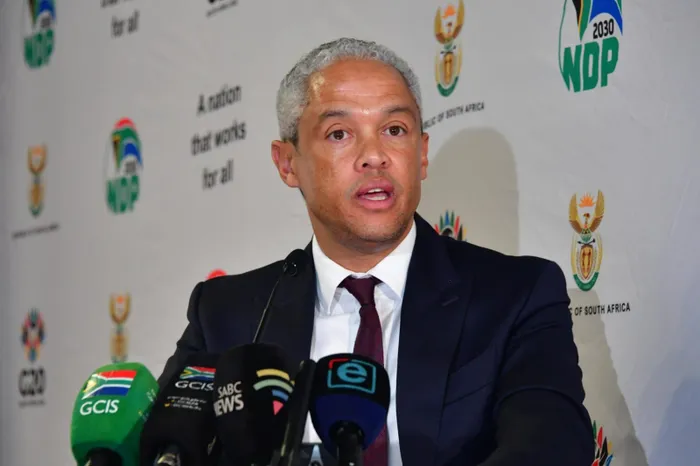
National Treasury Director-General Duncan Pieterse has confirmed the commencement of several key initiatives, including work on spending reviews, the conditional grants review focusing on infrastructure, and an audit to identify ghost workers.
Image: Supplied
The National Treasury on Friday said state-owned entities and other agencies will not be spared as the government embarks on phasing out and scaling down low-priority and underperforming programmes.
Director-General Duncan Pieterse said what Finance Minister Enoch Godongwana announced when he tabled the Medium-Term Budget Policy Statement (MTBPS) on Wednesday was really the first work coming out of the last few months.
“There is a lot of additional work under way, including on entities, and as that work is concluded, we will come back,” Pieterse said.
He was responding to MPs when they asked if state-owned enterprises, agencies, and Sector Education Training Authorities would also have their programmes closed down.
The National Treasury was briefing a joint meeting of the parliamentary committees on finance and appropriation on the revised and proposed fiscal framework.
Tabling the MTBPS, Godongwana announced Targeted and Responsible Savings (TARS) aimed at improving sending efficiency and eliminating waste.
“TARS initiative systematically identifies duplication, eliminates waste, and reorganises programmes to deliver for money. We are implementing medium-term savings of R6.7 billion by closing down or scaling down low-priority and under-performing programmes immediately.”
Godongwana said the exercise also involved identifying people double-dipping and defrauding the social grants system.
On Friday, Pieterse said they have identified R6.7bn in savings over the next three years.
“We will continue to announce further scaling down of programmes and programme closures,” he said.
Pieterse assured the MPs that it would not be up to departments which programmes should be discontinued.
“We work with departments but don’t rely on them for programme closures. There should be no concern about a potential conflict of interest that may arise there.”
As part of the TARS initiative, the National Treasury is conducting the government-wide ghost worker audit that seeks to derive savings to be used by provinces to address funding pressures.
The government has identified 8,854 cases as high-risk that received payments from multiple departments, inactive employees, or had bank account anomalies.
The high-risk cases were identified thanks to a partnership between the National Treasury, the Department of Home Affairs, and the South African Revenue Service.
Pieterse said they were using data-driven approaches in identifying and removing ghost workers from the payroll to improve efficiency and potentially address staff shortages.
The initiative is covering state institutions using the Personnel Salary system in both the national and provincial governments.
However, it currently excludes the audit of employees in state-owned enterprises and local government.
“As we advance with this work, the intention is to extend the scope,” he said.
The Education Labour Relations Council (ELRC) is undertaking physical verification of teachers and pupils in all provinces to complement the ghost worker coordinated by the National Treasury.
Pieterse said the ELRC exercise was done by the Basic Education Department, which prefers a headcount of employees.
“We are collaborating with them,” he said.
Meanwhile, Godongwana told MPs that the MTBS was largely a compass, which indicated the envelope and what must be expected in the Budget in February 2026, not itself an allocation for the next financial year.
He said there has been better-than-expected revenue recorded in the first quarter of the 2025/26 financial year.
The gross tax revenue for 2025/26 has been revised up by R19.7 billion, up from the estimated R17.5 billion.
Pieterse said the government will assess the debt collection performance of SARS before deciding whether the proposed R20 billion tax increase in 2026/27 should proceed.
“Any announcement would be made in the 2026 budget,” he said.
Godongwana said there was likely to be some fiscal space and bring in some non-recurring expenditure.
“The fiscal envelope shows our capacity for next year, assuming everything remains constant unless anything changes,” he said.
Godongwana said if better revenue was achieved, that would mean economic growth.
“That is to translate to better revenue and employment opportunities.”
mayibongwe.maqhina@inl.co.za